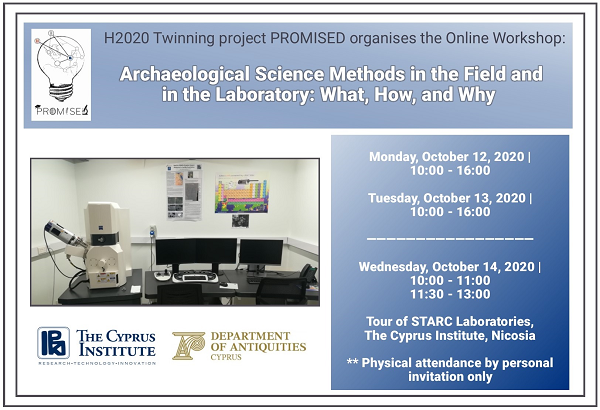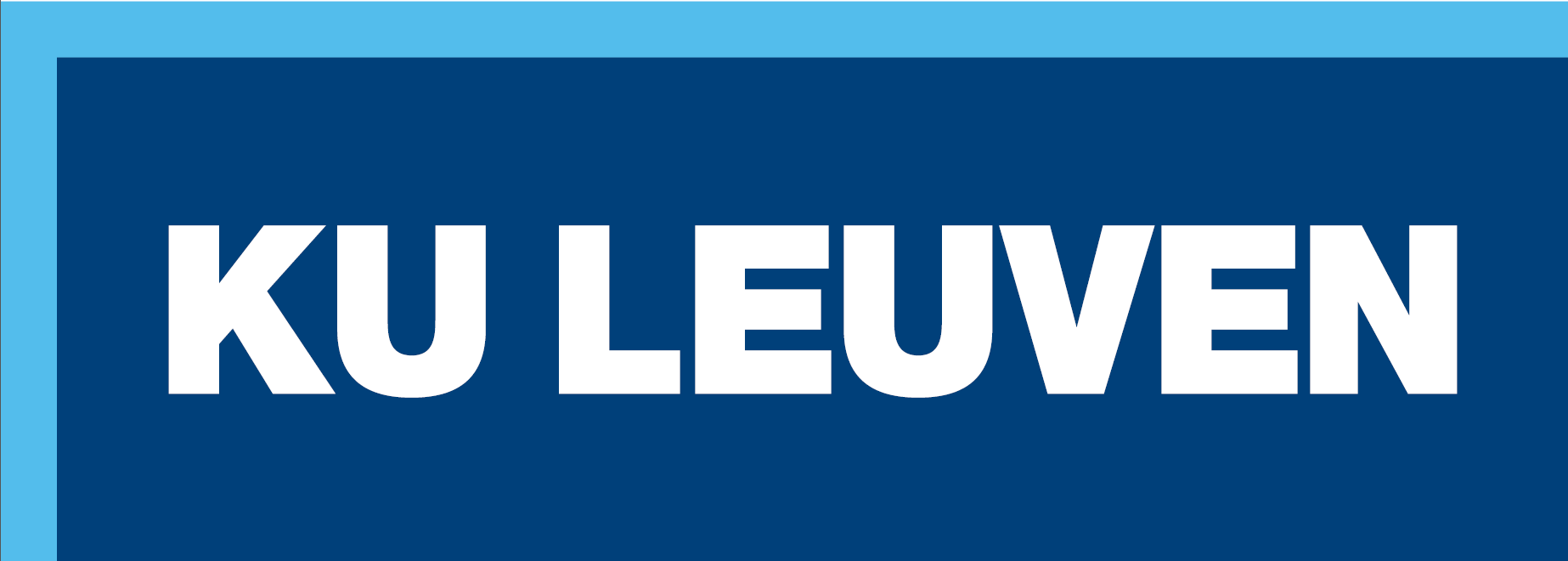
Monday, 12 & Tuesday, 13 October
Monday: 9:30 am - 16:00 pm | Tuesday: 09:45 am - 16:00 pm (all times are local Cyprus time)
Venue: NTL Events Room, 1st Floor, The Cyprus Institute, Nicosia
This online workshop can be attended in person after expression of interest subject to limitations in place regarding COVID-19.
To attend the event in person, please contact This email address is being protected from spambots. You need JavaScript enabled to view it. to register.
The event will be streamed live via The Cyprus Institute YouTube and Facebook channels.
You can find more information about the event including the program at the event's website here
The Cyprus Institute teams up with the University of Cambridge and KU Leuven to advance Archaeological Science research in the Eastern Mediterranean and Middle East (EMME), supported by a 3-year grant from the H2020 Widening support action ‘Twinning’.
The Promised: Promoting Archaeological Science in the eastern Mediterranean’ (Grant No 811068) project forms a three-node network of excellence in Bioarchaeology and Archaeological Materials Science within the Science and Technology in Archaeology and Culture Research Center (STARC) at The Cyprus Institute and linking it with the internationally-leading advanced research centres in Archaeological Science at KU Leuven and the University of Cambridge.
As part of the Promised project, STARC in collaboration with the Department of Antiquities organises a two-day workshop, "Archaeological Science Methods in the Field and in the Laboratory: What, How, and Why", from the 12th to the 13th of October (venue TBC) in Nicosia.
Scientists from STARC, University of Cambridge and University of Leuven will focus on sampling procedures in the field and methods of analysis in the laboratory on organic and inorganic archaeological materials
You can watch a recording of the presentations by following the corresponding link below.
Day 1 - Monday, 12 October 2020
| Prof. Thilo Rehren - Welcome |
| Dr Evi Margaritis - Identifying food production and consumption in the archaeological record: work in the field and in the laboratory |
| Dr Anna Spyrou - Exploring human-animal interactions in the past: Bones, biogeochemistry and ancient |
| Dr Efthymia Nikita - Human osteoarchaeology: field and laboratory procedures to minimize data loss |
| Prof. Matthew Collins - Integrating biomolecular analyses: What are we doing and what can we achieve |
| Dr Anita Radini - Beyond bones: non-skeletal human remains in ancient graves |
| Dr Panagiotis Karkanas and Dr Myrsini Gkouma - Perspectives on the role of microstratigraphy in archaeological research |
| Dr Thomas Brogan - An archaeological biography of the Minoan household: interdisciplinary approaches |
Day 2 - Tuesday, 13 October 2020
| Dr Sorin Hermon - Advanced methods of in situ artefact analysis based on integrated analytical and digital approaches |
| Dr Maria Dikomitou - The interdisciplinary study of archaeological ceramics. A discussion about sampling and methods of analysis |
| Prof. Thilo Rehren - Remains of metallurgy: more than copper smelting from the Troodos Mountains |
| Dr Frederik Rademakers - Methodologies for the analysis of copper alloys and their production waste: from the field to the lab |
| Prof. Patrick Degryse - Possibilities in the analysis of glass and vitreous materials: a review of questions and answers |
| Prof. Marcos Martinón-Torres - Advantages and limitations of portable XRF analysis in archaeology |
| Dr Artemios Oikonomou - First aid for artefacts and sites: the role of archaeological and conservation science |






